
Douglas: The Heartbeat of the Isle of Man
Douglas, the capital of the Isle of Man, is a charming blend of history, culture, and scenic beauty. Nestled on the island's east coast, this vibrant city offers a warm welcome and a wealth of experiences for every traveler. From its picturesque harbor to its bustling promenade, Douglas is a delightful destination that captures the essence of island life. Explore the rich heritage of Douglas at the Manx Museum, which offers a comprehensive look into the island's history and culture. The historic Gaiety Theatre, a beautifully restored Victorian venue, hosts a variety of performances that showcase the local arts scene. For those interested in motorsports, the world-famous Isle of Man TT races start and finish in Douglas, making it a must-visit for racing enthusiasts. Take a leisurely stroll along the Douglas Promenade, where you can enjoy stunning sea views and a variety of cafes and shops. The horse-drawn trams, a unique feature of Douglas, provide a nostalgic way to explore the seafront. Venture a little further to find the Great Union Camera Obscura, offering a fascinating perspective on the city and its surroundings. Douglas is also a gateway to the natural beauty of the Isle of Man. From here, you can easily access the island's rugged coastline, scenic countryside, and charming villages. Whether you're interested in outdoor adventures, historical sites, or simply soaking up the local atmosphere, Douglas is the perfect starting point for your Isle of Man journey.
Local tips in Douglas
- Visit the Manx Museum to get an in-depth understanding of the island's history and culture.
- Catch a performance at the historic Gaiety Theatre, a beautifully restored Victorian venue.
- Experience the thrill of the Isle of Man TT races, which start and finish in Douglas.
- Take a ride on the horse-drawn trams along the Douglas Promenade for a nostalgic experience.
- Check out the Great Union Camera Obscura for a unique view of the city and its surroundings.
Douglas: The Heartbeat of the Isle of Man
Douglas, the capital of the Isle of Man, is a charming blend of history, culture, and scenic beauty. Nestled on the island's east coast, this vibrant city offers a warm welcome and a wealth of experiences for every traveler. From its picturesque harbor to its bustling promenade, Douglas is a delightful destination that captures the essence of island life. Explore the rich heritage of Douglas at the Manx Museum, which offers a comprehensive look into the island's history and culture. The historic Gaiety Theatre, a beautifully restored Victorian venue, hosts a variety of performances that showcase the local arts scene. For those interested in motorsports, the world-famous Isle of Man TT races start and finish in Douglas, making it a must-visit for racing enthusiasts. Take a leisurely stroll along the Douglas Promenade, where you can enjoy stunning sea views and a variety of cafes and shops. The horse-drawn trams, a unique feature of Douglas, provide a nostalgic way to explore the seafront. Venture a little further to find the Great Union Camera Obscura, offering a fascinating perspective on the city and its surroundings. Douglas is also a gateway to the natural beauty of the Isle of Man. From here, you can easily access the island's rugged coastline, scenic countryside, and charming villages. Whether you're interested in outdoor adventures, historical sites, or simply soaking up the local atmosphere, Douglas is the perfect starting point for your Isle of Man journey.
When is the best time to go to Douglas?
Iconic landmarks you can’t miss
Peel Castle
Discover Peel Castle: A majestic medieval fortress on the Isle of Man, rich in history and offering stunning coastal views.
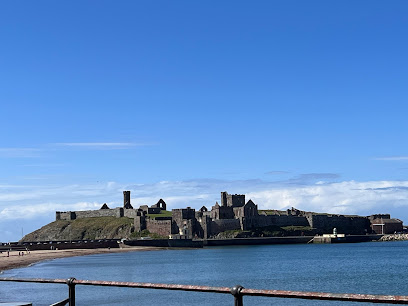
The Manx Museum
Explore the Isle of Man's history and culture at The Manx Museum, showcasing artifacts from Viking to modern times in a captivating setting.
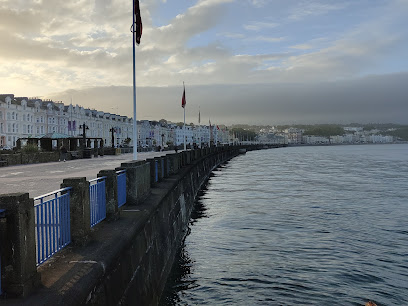
Castle Rushen
Explore the historical beauty of Castle Rushen, a majestic landmark in Castletown, Isle of Man, rich in medieval heritage and breathtaking views.
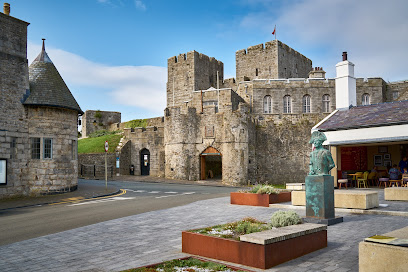
The Great Laxey Wheel
Explore the Great Laxey Wheel, the world's largest working waterwheel, and immerse yourself in the Isle of Man's rich industrial heritage surrounded by breathtaking scenery.
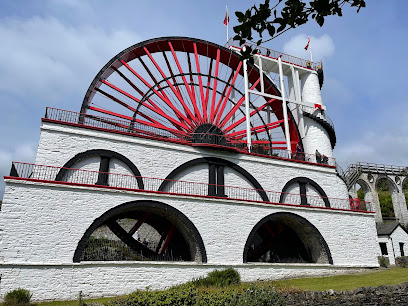
Best Western Palace Hotel Casino
Discover luxury, entertainment, and stunning coastal views at the Best Western Palace Hotel Casino in Douglas, Isle of Man.

House of Manannan
Explore the Isle of Man's vibrant history at the House of Manannan, a unique museum that showcases Celtic and Viking heritage.
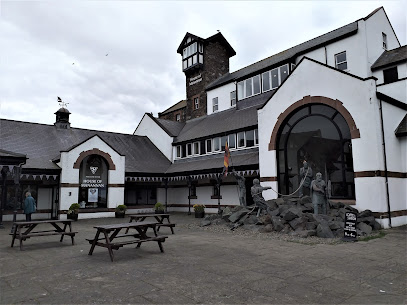
Villa Marina
Discover Villa Marina, a premier concert hall in Douglas, Isle of Man, offering a vibrant mix of live music and cultural events amidst stunning waterfront views.
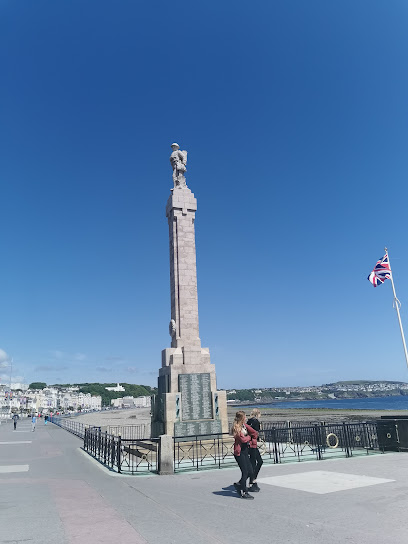
Curraghs Wildlife Park
Explore Curraghs Wildlife Park: A Premier Wildlife Park in the Isle of Man with Unique Animals & Scenic Landscapes for Families and Nature Lovers.
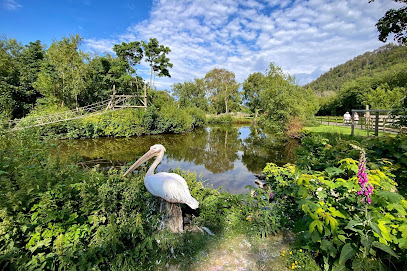
Glen Helen
Immerse yourself in the tranquil beauty of Glen Helen, a national forest on the Isle of Man, ideal for hiking, picnicking, and enjoying nature.
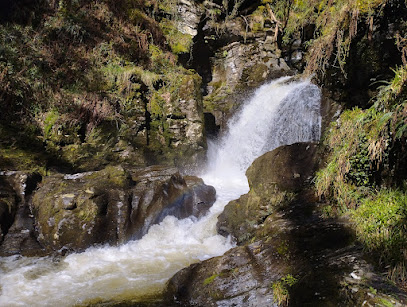
Laxey Beach
Discover the tranquil beauty of Laxey Beach on the Isle of Man, a perfect coastal retreat for relaxation, adventure, and unforgettable memories.
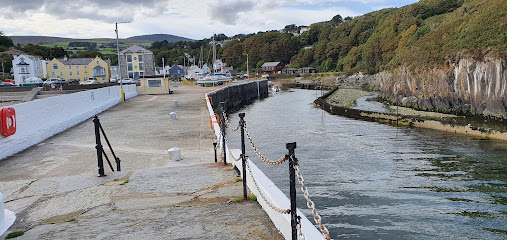
Point of Ayre Lighthouse
Experience the captivating beauty and maritime history at Point of Ayre Lighthouse, a stunning landmark on the Isle of Man's breathtaking coastline.
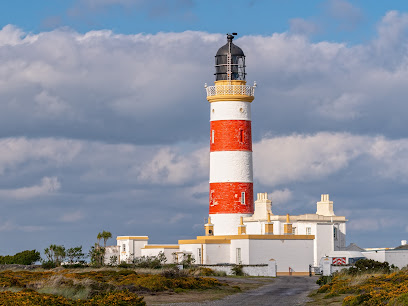
Tynwald Hill
Explore the historical significance of Tynwald Hill, the heart of Isle of Man's governance and a stunning landmark rich in cultural heritage.
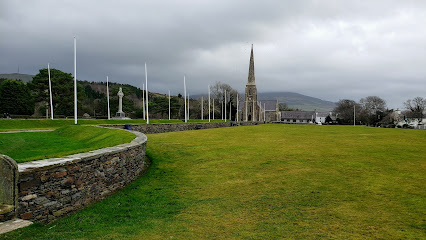
Cregneash
Explore the enchanting Cregneash on the Isle of Man, where history and natural beauty intertwine in a unique cultural experience.
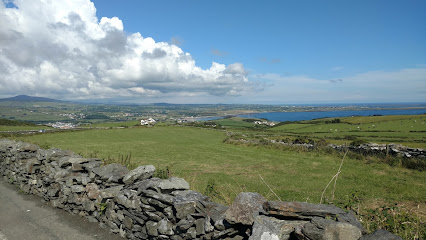
Douglas Promenade Gardens
Experience the natural beauty and tranquility of Douglas Promenade Gardens, a serene escape on the Isle of Man's picturesque coastline.
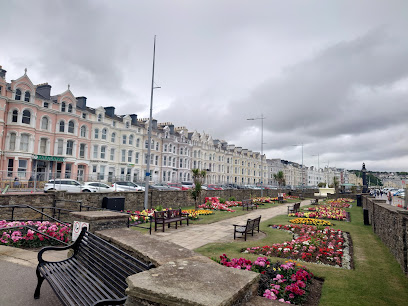
Milner's Tower
Discover the historical significance and breathtaking views at Milner's Tower, a must-visit landmark on the Isle of Man.
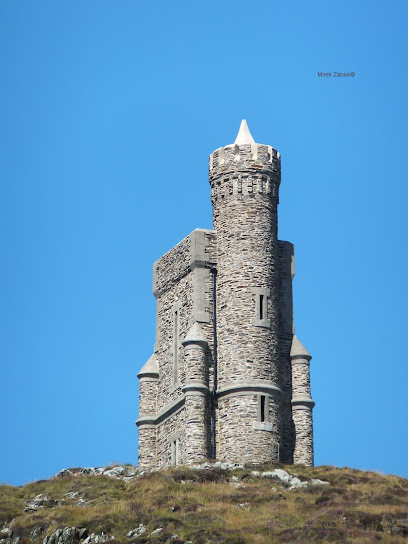
Unmissable attractions to see
Manx Museum
Explore the rich history and cultural treasures of the Isle of Man at the Manx Museum in Douglas, a captivating destination for all visitors.
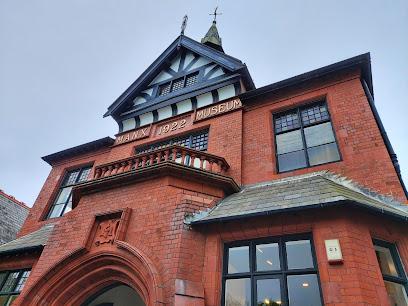
Peel Castle
Explore the historic Peel Castle on the Isle of Man, where breathtaking views meet rich heritage in a picturesque coastal setting.
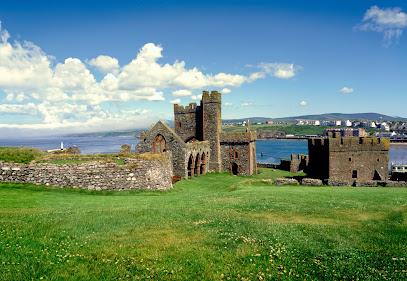
Castle Rushen
Explore Castle Rushen, an iconic medieval castle in Castletown, Isle of Man, showcasing rich history, stunning architecture, and breathtaking views.
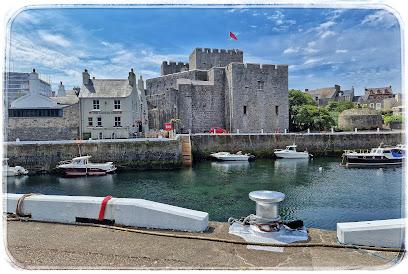
The Great Laxey Wheel
Explore the Great Laxey Wheel, the world's largest waterwheel, where history meets breathtaking beauty in the heart of the Isle of Man.
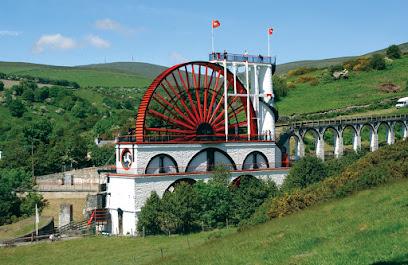
House of Manannan
Explore the Isle of Man's maritime history and Celtic culture at the House of Manannan, a captivating museum in Peel.
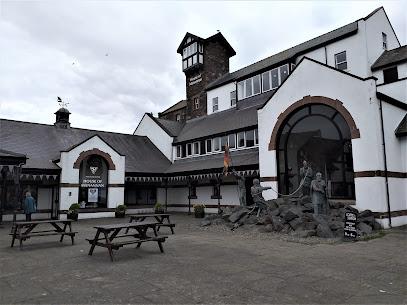
Isle of Man Motor Museum
Discover the rich history of motoring at the Isle of Man Motor Museum, featuring an extensive collection of classic and vintage vehicles.
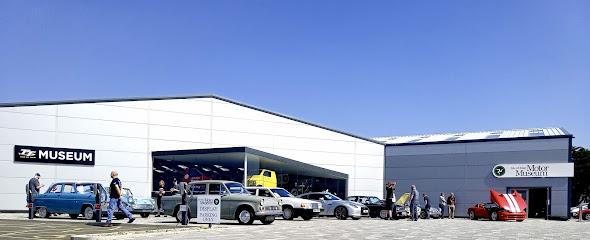
Point of Ayre Lighthouse
Explore the iconic Point of Ayre Lighthouse on the Isle of Man, a historical landmark with stunning coastal views and rich maritime heritage.
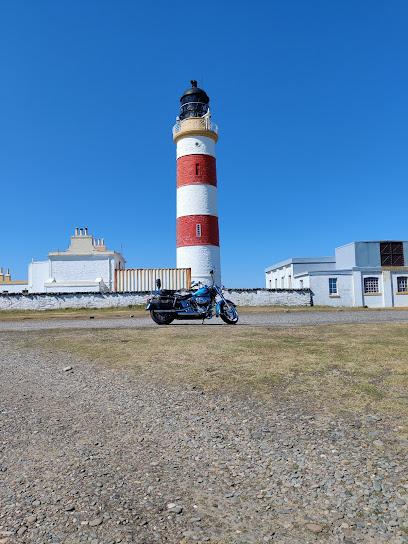
Cregneash
Discover Cregneash, a historic village on the Isle of Man, where traditional life meets stunning coastal scenery in a unique living museum experience.
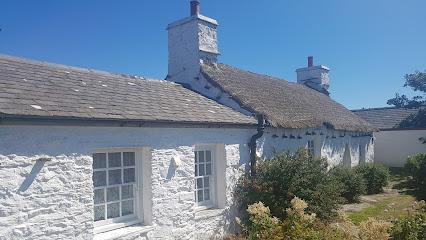
Niarbyl Beach
Discover the beauty of Niarbyl Beach, a tranquil coastal retreat on the Isle of Man, perfect for relaxation and outdoor adventures amidst stunning scenery.
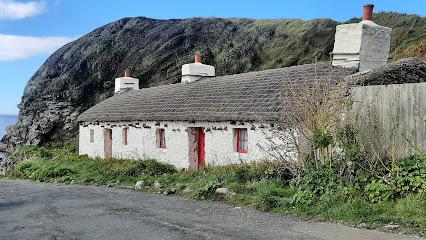
Groudle Glen Railway
Experience the charm of Groudle Glen Railway, a hidden gem on the Isle of Man, with scenic rides through stunning natural landscapes.
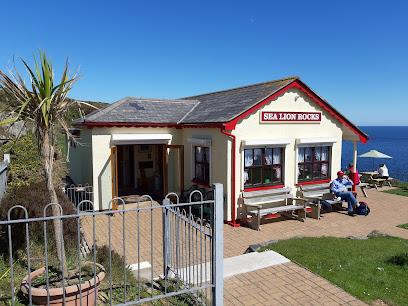
Fairy Bridge
Experience the enchanting Fairy Bridge on the Isle of Man, a historic site where folklore meets breathtaking natural beauty.
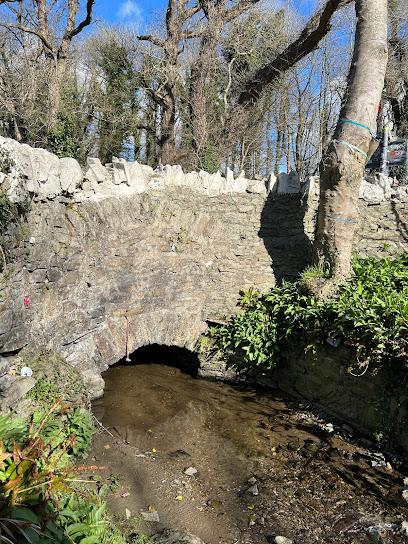
Manx Aviation and Military Museum
Discover the Isle of Man's aviation and military history at the Manx Aviation and Military Museum, a captivating experience for all visitors.
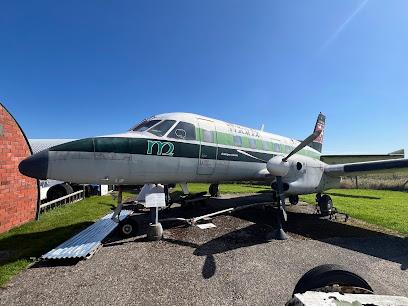
Summerhill Glen
Discover the tranquil beauty of Summerhill Glen in Douglas, Isle of Man - a perfect retreat for nature lovers and peaceful wanderers.
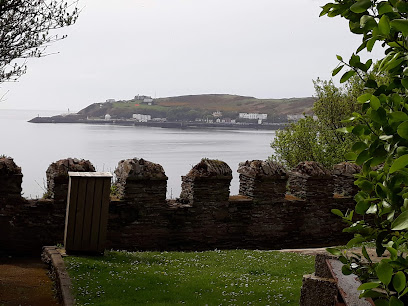
Snaefell
Discover the breathtaking views from Snaefell, the highest peak on the Isle of Man, where nature and history come together for an unforgettable experience.
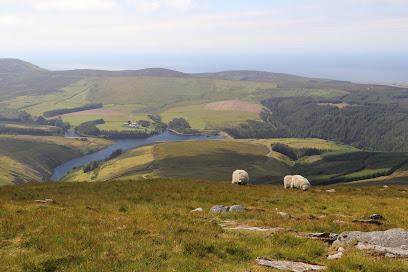
Isle of Man Steam Railway - (Douglas, Station)
Experience the charm of the Isle of Man aboard the historic Steam Railway, a journey through scenic landscapes and rich heritage.
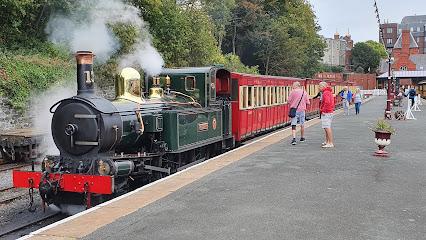
Essential places to dine
Jak's Bar & Smokehouse
Discover Jak's Bar & Smokehouse: where grilled perfection meets stunning views on the Isle of Man's Loch Promenade.
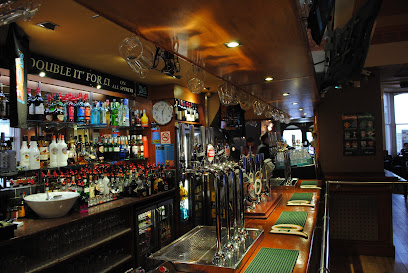
The Barbary Coast Grill & Bar
Experience delicious cuisine with stunning harbor views at The Barbary Coast Grill & Bar in Douglas, Isle of Man.
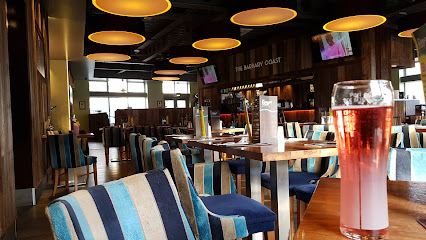
1886 Bar & Grill
Discover the vibrant flavors and lively atmosphere at 1886 Bar & Grill in Douglas - your ultimate destination for grilled delights and nightlife.
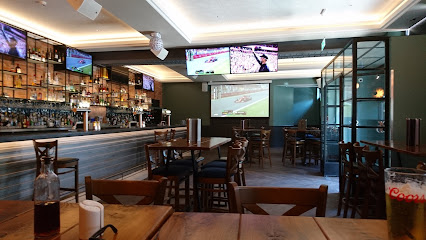
Just Pizza & Pasta
Discover authentic Italian flavors at Just Pizza & Pasta in Douglas - perfect for families seeking delicious meals at great prices.
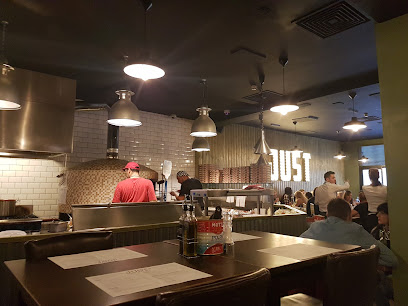
Little Fish Cafe
Experience delectable seafood dishes at Little Fish Cafe in Douglas, Isle of Man – where fresh flavors meet breathtaking harbor views.
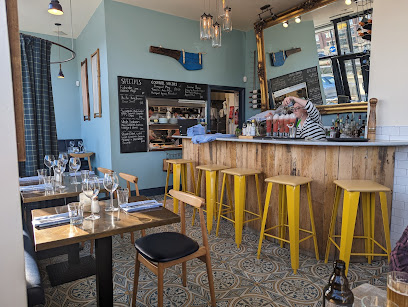
The Tea Junction
Discover a charming tea house in Douglas offering exquisite teas and delightful breakfasts amidst a cozy atmosphere.
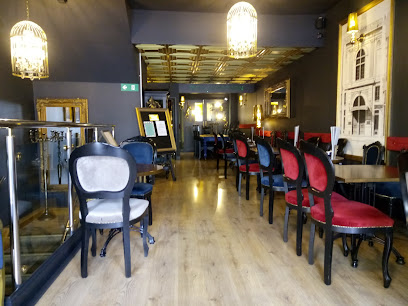
Terrace Chippy Diner & Take Away
Experience authentic British fish and chips at Terrace Chippy Diner in Douglas – a culinary delight you won't want to miss during your Isle of Man visit.
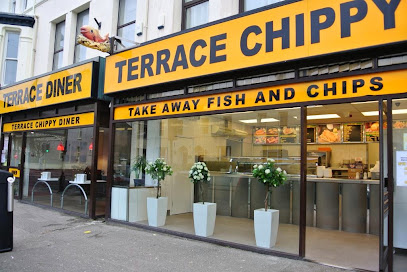
Thai Thai Restaurant
Indulge in authentic Thai cuisine at Thai Thai Restaurant in Douglas - where every meal is an unforgettable journey through flavors.
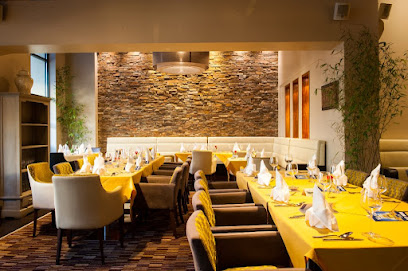
Capone's
Discover Capone's in Douglas: Your go-to spot for delightful breakfasts and fast food at great prices on the Isle of Man.
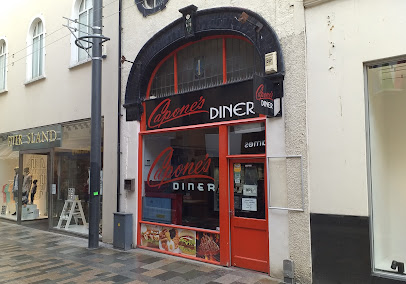
Paparazzi Pizzeria
Discover authentic Italian flavors at Paparazzi Pizzeria in Douglas – where delicious cuisine meets stunning bay views.
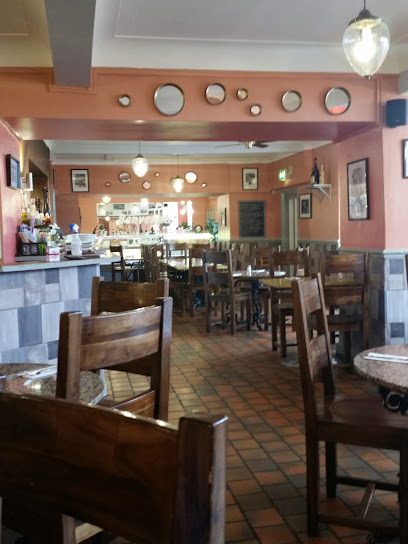
New Hong Kong
Savor authentic Asian cuisine at New Hong Kong in Douglas – a culinary haven blending tradition with vibrant flavors.
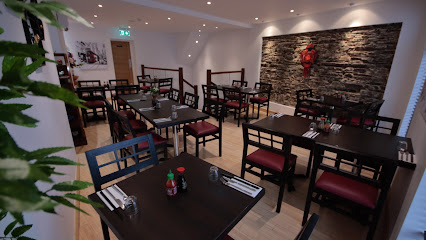
Oscar's
Discover Oscar's in Douglas: A vibrant restaurant and bar offering local flavors and international delights in a lively atmosphere.
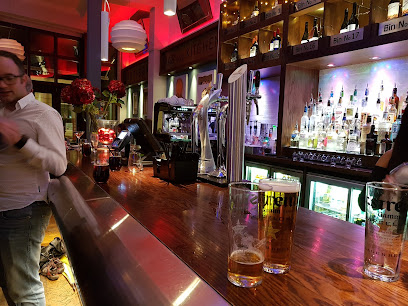
La Piazza Restaurant
Experience authentic Italian cuisine at La Piazza Restaurant on Loch Promenade in Douglas - where every meal is a celebration of flavor.
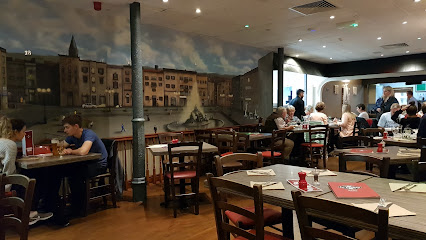
Talk Of The Town
Savor exquisite local cuisine at Talk Of The Town in Douglas—where delightful dishes meet a warm atmosphere.
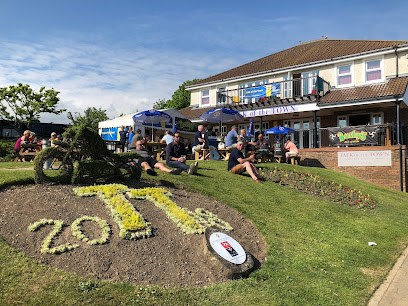
Wine Down
Experience exquisite wines and fine dining at Wine Down in Douglas - where every sip tells a story.
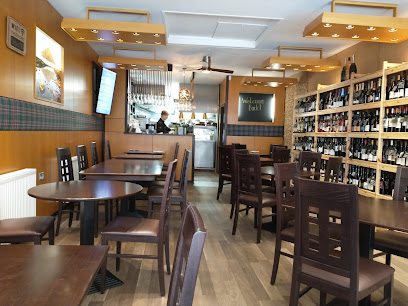
Markets, malls and hidden boutiques
Marks and Spencer
Marks and Spencer in Douglas: Your go-to supermarket for quality groceries, stylish clothing, and local specialties in the Isle of Man.
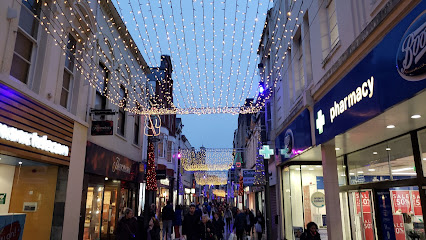
The Strand Shopping Centre
Discover a vibrant shopping oasis at The Strand Shopping Centre in Douglas, featuring diverse shops, delightful dining, and engaging events for all.
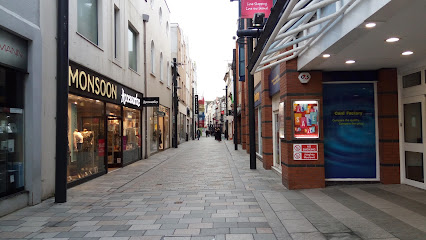
TK Maxx
Explore TK Maxx in Douglas for unbeatable deals on fashion and homeware, where every visit promises a unique shopping experience.
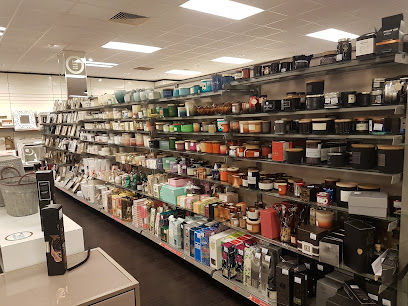
Tesco Superstore
Experience the local shopping culture at Tesco Superstore, your go-to destination for groceries and everyday essentials in Douglas, Isle of Man.
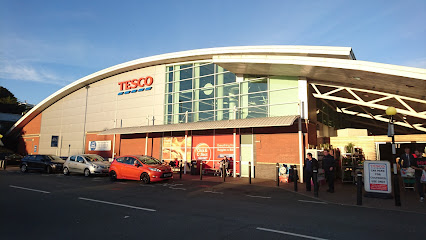
Waterstones
Discover a treasure trove of books and local literature at Waterstones, the premier bookstore in Douglas, Isle of Man.
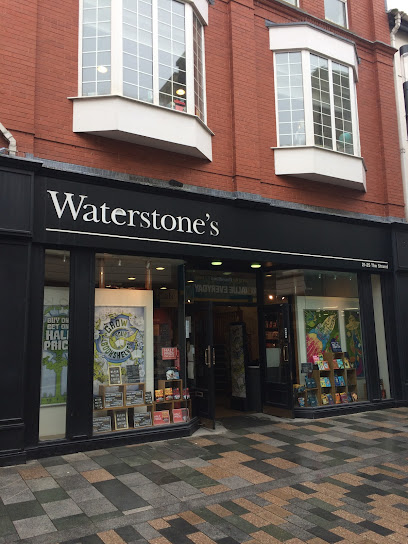
Dealz
Experience unbeatable value and variety at Dealz, your ultimate shopping destination in Douglas, Isle of Man.

Tower House Shopping Centre
Discover unique treasures and local delicacies at Tower House Shopping Centre in Douglas, Isle of Man—a shopping paradise by the sea.
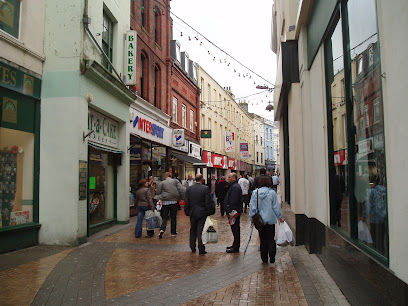
JAC Stores - Strand Street
Explore JAC Stores on Strand Street for a delightful shopping experience of home goods and unique toys in the heart of Douglas, Isle of Man.
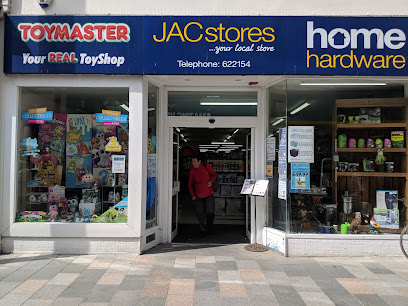
The Book Company Ltd
Explore a treasure trove of stories at The Book Company Ltd, where local literature meets global classics in the heart of Douglas.
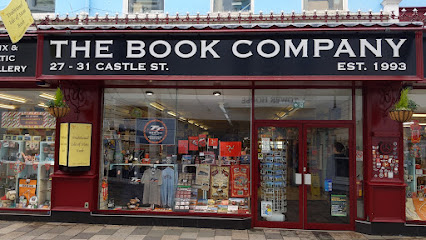
Peacocks
Discover affordable fashion at Peacocks in Douglas, where style meets savings for the whole family!

JAC Stores - Castle Street
Explore JAC Stores, a charming toy and fishing store in Douglas, Isle of Man, offering a delightful shopping experience for all ages.
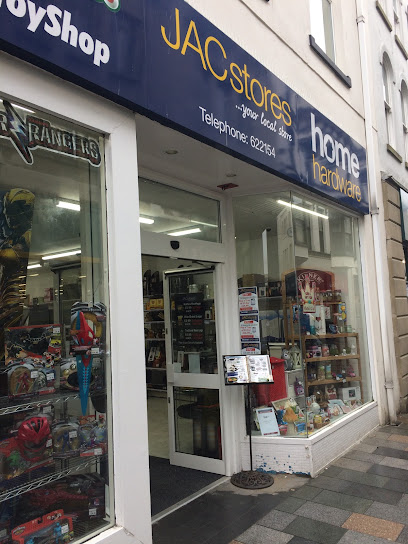
TT Shirts.com
Discover quality fashion at TT Shirts in Douglas, Isle of Man, where style meets local charm in a welcoming shopping experience.
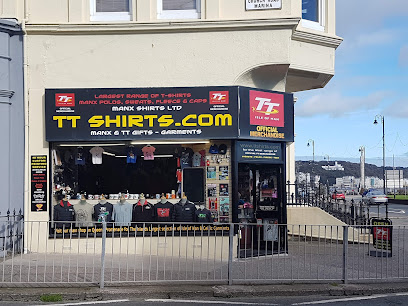
Next
Explore Next in Douglas for stylish clothing and accessories that cater to every age and taste, all set in a charming island atmosphere.
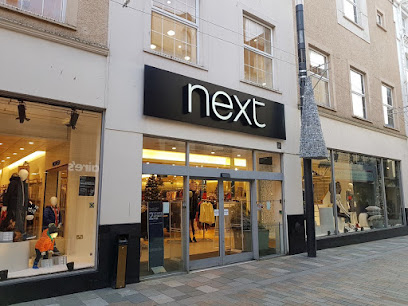
The Entertainer
Discover the magic of play at The Entertainer in Douglas, where toys come to life and imagination knows no bounds.
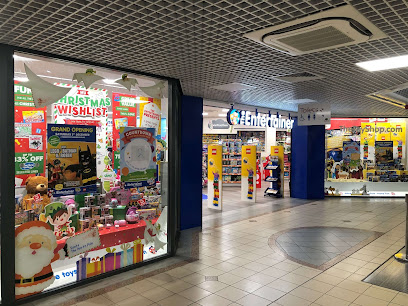
The Creative Shop
Explore The Creative Shop in Douglas for unique gifts and local artisan treasures, perfect for capturing the essence of the Isle of Man.
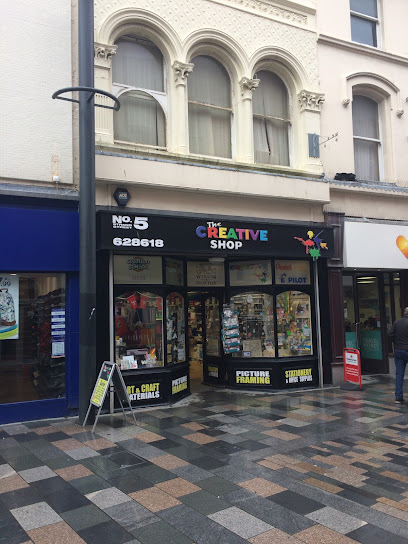
Essential bars & hidden hideouts
Jak's Bar & Smokehouse
Savor mouthwatering grilled delights at Jak's Bar & Smokehouse, a vibrant dining spot on the stunning Loch Promenade in Douglas, Isle of Man.
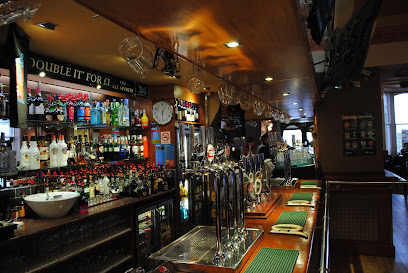
1886 Bar & Grill
Discover the vibrant atmosphere of 1886 Bar & Grill in Douglas, where exceptional cuisine meets lively entertainment for an unforgettable experience.
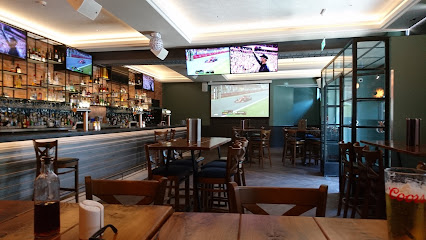
The Terminus Tavern
Discover the charm of The Terminus Tavern in Douglas, where local flavors meet a vibrant atmosphere for an unforgettable pub experience.
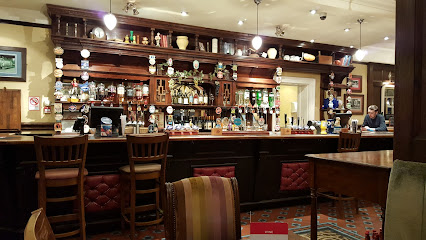
Rovers Return
Discover the heart of Isle of Man's pub culture at Rovers Return, a charming spot for local ales and hearty fare.
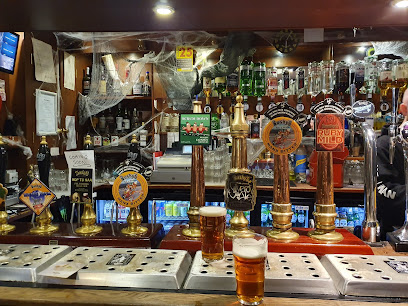
The Original Quids Inn
Discover the lively atmosphere of The Original Quids Inn, a premier live music bar in Douglas, Isle of Man, perfect for karaoke and sports fans.
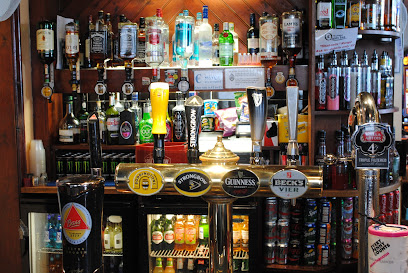
Thirsty Pigeon
Experience the charm of local culture at Thirsty Pigeon, the perfect pub to unwind with a drink in Douglas.
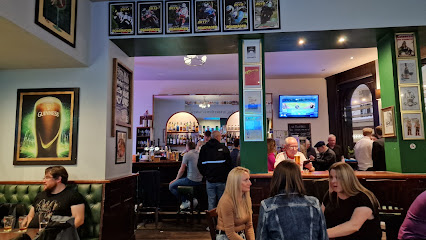
Oscar's
Discover the vibrant atmosphere and diverse menu at Oscar's, a must-visit bar and restaurant in the heart of Douglas, Isle of Man.
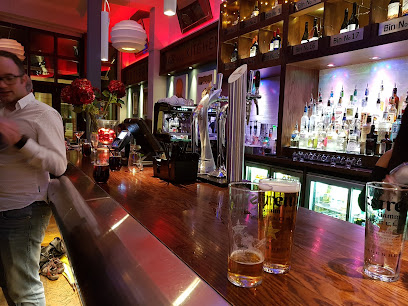
Brendan O'Donnell's
Discover Brendan O'Donnell's Pub: A cozy spot in Douglas blending local flavors and vibrant culture for an unforgettable Isle of Man experience.
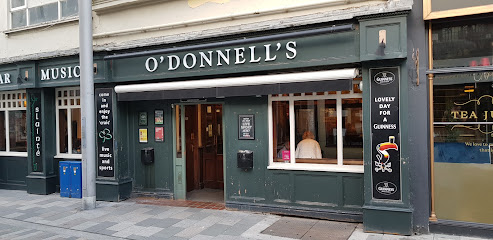
The Railway Inn
Experience the charm of The Railway Inn, a welcoming pub in Douglas offering local ales and hearty meals amidst a cozy atmosphere.
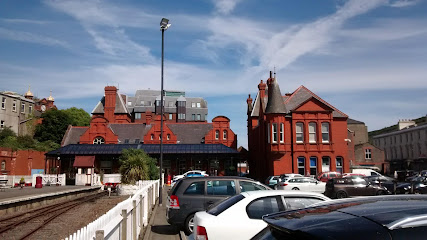
The Prospect
Discover The Prospect in Douglas: a lively pub and restaurant blending local flavors with a vibrant atmosphere for an unforgettable experience.
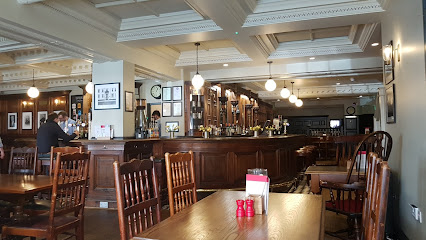
The Front Porch
Discover the vibrant atmosphere and diverse drink selection at The Front Porch, a must-visit bar in Douglas, Isle of Man.
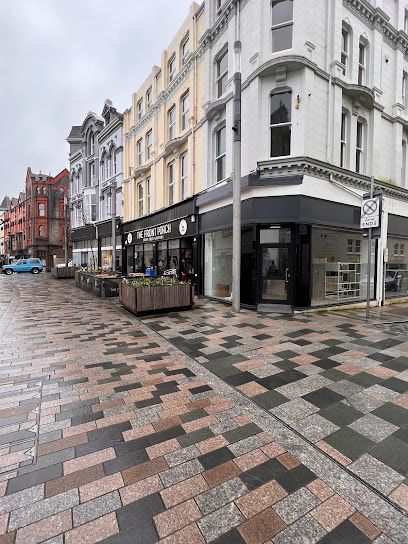
The Nags Head
Explore the heart of Douglas at The Nags Head, a cozy pub offering local cuisine and a welcoming atmosphere for tourists.
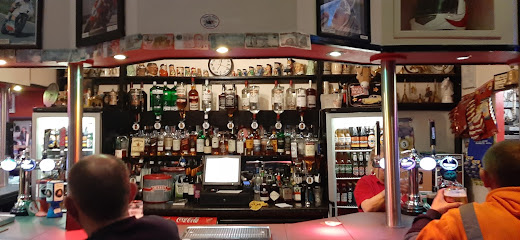
Bar George
Experience the elegance of Bar George, a premier wine bar and restaurant in Douglas, Isle of Man, where gourmet cuisine meets exceptional wines.
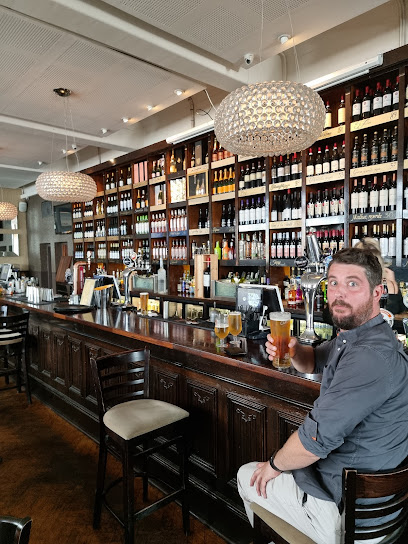
The Outback
Experience the vibrant atmosphere and Australian-inspired drinks at The Outback, an exciting bar in Douglas, Isle of Man.
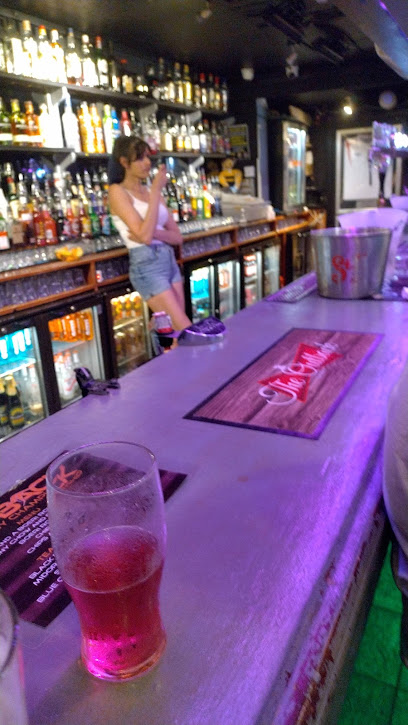
Local Phrases
-
- HelloHallo
[ha-loh] - GoodbyeSlane lhiat
[slan-eh yat] - YesYea
[yay] - NoNagh
[nah] - Please/You're welcomeCur do laa erriu
[kur doh laa er-ree-oo] - Thank youGura mie ayd
[goo-rah mee ayd] - Excuse me/SorryJeeagh mee
[jee-ahg mee] - How are you?Cona ta shiu?
[koh-nah tah shee-oo] - Fine. And you?Tra ta shin? As shiu?
[trah tah shin? as shee-oo] - Do you speak English?Vel shiu gaelgey as Baarle?
[vel shee-oo guyl-geh as bar-luh] - I don't understandCha nel feme aym
[khah nel feh-meh eym]
- HelloHallo
-
- I'd like to see the menu, pleaseTa mee er-lheh dy yeeagh yeshyn, my sailliu
[tah mee er-lheh duh yee-ahg yesh-in, my sahl-yoo] - I don't eat meatCha nel feam aym fea
[khah nel feh-meh eym fay-ah] - Cheers!Slaynt
[slaynt] - I would like to pay, pleaseTa mee er-jeet dy phaitchey, my sailliu
[tah mee er-jeet duh fayt-chey, my sahl-yoo]
- I'd like to see the menu, pleaseTa mee er-lheh dy yeeagh yeshyn, my sailliu
-
- Help!Cooney
[koo-ney] - Go away!Tann shiu goll magh
[tahn shee-oo gohl magh] - Call the Police!Cur y Pholice!
[kur uh foh-lee-keh] - Call a doctor!Cur dty dhyghney
[kur duh dig-neh] - I'm lostTa mee currit
[tah mee koo-rit] - I'm illTa mee dorraghey
[tah mee dor-rah-gee]
- Help!Cooney
-
- I'd like to buy...Ta mee er-lheh dy chee...
[tah mee er-lheh duh chee...] - I'm just lookingShe lheem rish
[shee lheem rish] - How much is it?Cre cha nel eh?
[kreh khah nel eh?] - That's too expensiveTa shoh ro lheean
[tah hoh roh yay-an] - Can you lower the price?Vel oo lugh y chostey?
[vel oo loo-ghuh ee khos-tey?]
- I'd like to buy...Ta mee er-lheh dy chee...
-
- What time is it?Cre h-ura yn traa?
[kreh hoor-ah un trah?] - It's one o'clockTa eh jeih bleeaney
[tah eh jay bleh-an-eh] - Half past (10)Lurgan (jeih)
[loor-gan (jay)] - MorningYernagh
[yer-nah] - AfternoonAghin-oon
[ahg-een oon] - EveningAyre
[ayr] - YesterdayOie ren
[oy rehn] - TodayJiu
[yoo] - TomorrowMayl
[mahl] - 1Un
[oon] - 2Doo
[doo] - 3Tree
[tree] - 4Kiare
[key-ar-eh] - 5Queig
[kweh-g] - 6Shey
[shay] - 7Shiaght
[shy-acht] - 8Hoght
[hoh-ght] - 9Naoi
[nee] - 10Jeih
[jay]
- What time is it?Cre h-ura yn traa?
-
- Where's a/the...?C'raad t'eh y...
[kraad teh ee...] - What's the address?Cre cha nel y chooish?
[kreh khah nel ee khoo-ish?] - Can you show me (on the map)?Vel oo er-ymsagh mee (myr yn ayrn)?
[vel oo er-im-sahg mee (meer un air-n)?] - When's the next (bus)?Quoi laa yn cheid (bees)?
[kwee laa un kheyd (bees)?] - A ticket (to ....)Thieckey (gys ....)
[tee-keh (gees ....)]
- Where's a/the...?C'raad t'eh y...
History of Douglas
-
Douglas, the capital of the Isle of Man, boasts a rich history that dates back to the Viking Age. The name 'Douglas' itself is derived from the Old Norse word 'Djúp-lógr,' meaning 'deep water or bay.' The Vikings established the area as a strategic trading post and fortified settlement. Artifacts and rune stones discovered in the region provide a glimpse into the Norse way of life and their influence on local culture.
-
Douglas began to gain prominence in the 18th century as a bustling port town. The development of the harbor and the increasing trade routes brought prosperity to the region. By the mid-18th century, Douglas became an important hub for commerce, particularly in the export of herring and other local goods. The town's growth was further spurred by the establishment of shipbuilding industries and the influx of merchants and craftsmen.
-
The Victorian era marked a significant transformation for Douglas, as it became a popular seaside resort. The introduction of steamships made travel more accessible, attracting visitors from the British Isles and beyond. The construction of grand hotels, promenades, and the iconic Douglas Bay Horse Tramway in 1876 catered to the influx of tourists seeking leisure and recreation. This period also saw the development of cultural landmarks such as the Gaiety Theatre and the Villa Marina.
-
During World War II, the Isle of Man played a unique role as the site of internment camps for enemy aliens. Douglas and its surroundings saw the establishment of several camps where individuals, primarily German and Austrian nationals, were detained. The presence of these camps had a profound impact on the local community, and remnants of this period can still be explored in the form of historical markers and preserved sites.
-
In the latter half of the 20th century and into the 21st century, Douglas has continued to evolve while preserving its rich heritage. The town has embraced modernity with the development of contemporary infrastructure and amenities, yet it remains deeply connected to its cultural roots. Annual events such as the Isle of Man TT Races and the Manx Grand Prix attract visitors from around the globe, celebrating both the town's historic charm and its vibrant present.
Douglas Essentials
-
Douglas, the capital of the Isle of Man, is accessible by air and sea. The Isle of Man Airport (Ronaldsway Airport) is located approximately 15 kilometers south of Douglas and offers flights from various UK cities such as London, Manchester, and Liverpool, as well as seasonal flights from other European destinations. Alternatively, you can take a ferry operated by the Isle of Man Steam Packet Company, which runs regular services from Liverpool, Heysham, Belfast, and Dublin to Douglas Harbour.
-
Douglas has a well-developed public transportation system. The Isle of Man Bus and Rail operates bus services throughout the town and the island. The heritage railways, including the steam railway, electric railway, and the Snaefell Mountain Railway, are popular among tourists. Taxis are readily available, and car rentals can be arranged for those wishing to explore at their own pace. Cycling is also a popular means of getting around, and bike rentals are available.
-
The official currency on the Isle of Man is the Manx pound (IMP), which is equivalent in value to the British pound (GBP). British pounds are also widely accepted. Credit and debit cards are commonly used, and ATMs are plentiful throughout Douglas. It is advisable to carry some cash for smaller establishments and in more rural areas where card payment may not be accepted.
-
Douglas is generally considered a safe destination for tourists. There are no specific high-crime areas targeting tourists, but standard precautions should be taken. Avoid isolated areas at night and be mindful of your belongings in crowded places. Petty crime, such as pickpocketing, is rare but not unheard of.
-
In case of emergency, dial 999 for police, fire, or medical assistance. The main hospital, Noble's Hospital, is located in Braddan, just outside Douglas, and provides comprehensive medical services. Pharmacies are available throughout the town for minor health concerns. It is recommended to have travel insurance that covers medical emergencies.
-
Fashion: Do dress comfortably and consider the weather, which can be unpredictable. Layers are advisable. Avoid overly casual attire in more formal settings. Religion: Do respect local customs and traditions. While the Isle of Man is predominantly Christian, there is a diverse religious community. Public Transport: Do be punctual and have the correct fare ready. Don't eat or drink on public transport. Greetings: Do greet people with a friendly 'hello' or 'hi'. A handshake is common in formal settings. Eating & Drinking: Do try local specialties such as Manx kippers and queenies. Don't forget to tip in restaurants, with 10% being customary.
-
To experience Douglas like a local, visit the local pubs and try the locally brewed ales. The Douglas Promenade is a great place for a stroll, especially during the annual Isle of Man TT motorcycle races. The Manx Museum offers a deep dive into the island's history and culture. Don't miss the opportunity to explore the nearby countryside and coastal paths, which offer stunning views and are a favorite among residents.
Nearby Cities to Douglas
-
Things To Do in Onchan
-
Things To Do in Laxey
-
Things To Do in Ballasalla
-
Things To Do in Castletown
-
Things To Do in Peel
-
Things To Do in Kirk Michael
-
Things To Do in Port St Mary
-
Things To Do in Port Erin
-
Things To Do in Ramsey
-
Things To Do in Belfast
-
Things To Do in Liverpool
-
Things To Do in Drogheda
-
Things To Do in Dublin
-
Things To Do in Chester
-
Things To Do in Bray













